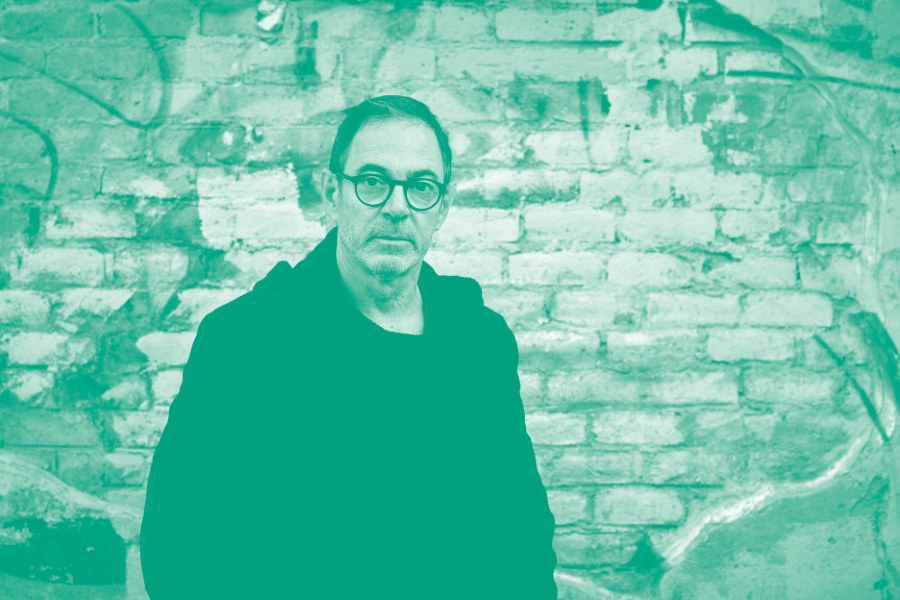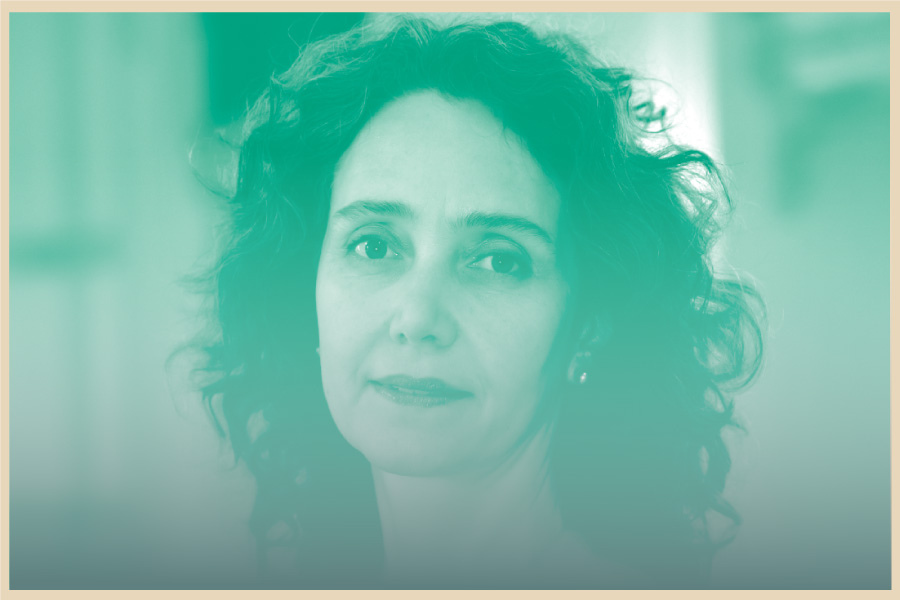Aníbal Cetrangolo: “La ópera para nosotros es un espía, una señal para estudiar el contacto de culturas”

Entrevista al Doctor en Musicología Aníbal Enrique Cetrangolo
Sobre Aníbal Enrique Cetrangolo
Doctor en Musicología por la Universidad de Valladolid con tesis Ópera e identidad en el encuentro migratorio. El melodrama italiano en Argentina entre 1880 y 1920.
Desde 1974 se dedica a la investigación y difusión del repertorio colonial americano. Fundó el primer grupo de ese tipo en Europa, el ensemble Albalonga, con el que presentó y grabó numerosas obras en primera audición contemporánea. Además dirigió numerosas óperas y oratorios del período inicial del género como la Euridice de Jacopo Peri, Dafne de Marco da Gagliano, la Rappresentazione di Anima e Corpo de Emilio de’Cavalieri, La Liberazione di Ruggiero nel Isola d’Alcina de Francesca Caccini, Il Palazzo Incantato di Atlante de Luigi Rossi. Sus investigaciones sobre Giacomo Facco fueron publicadas en cuatro volúmenes y ha grabado óperas de ese compositor en primicia mundial.
Es docente del Conservatorio de Castelfranco Veneto y de la Universidad de Venecia y colabora con el Grove’s Dictionnary, la Utet y el Diccionario de la Música Ibero-americana. En 1999 le fue conferido el Diploma al Mérito de la Fundación Konex por su actividad investigativa.
Dirige el Istituto per lo studio della Musica Latinoamericana (IMLA) y coordina el Study Group RIIA, Relaciones Italo iberoamericanas, el teatro musical de la IMS.
Tú investigación sobre la ópera en latinoamérica aborda temas como la migración y la cultura. Cómo se relacionan la migración, la cultura latina y la ópera?
Desde el Instituto queríamos que nuestro objeto de estudio tuviese que ver con la relación entre la música y lo social. Como este grupo fue integrado por un grupo latinoamericanos y europeos resultó ser que pensamos en cuál iba a ser el objeto ideal para poder estudiar a través de la música lo social, después de debatir bastante nos dimos cuenta que la ópera era el objeto más permeado por los social, es decir, cuando se toca una 5ta Sinfonía de Beethoven en Moscú, en Boston o en Santiago de Chile, estamo seguros que las notas son las mismas. Cuando se está haciendo La Traviata no, hay arias que sobran, se sacan, hay agudos que se inventan, etc, eso quiere decir que el lugar afecta muchísimo.
La ópera para nosotros, además de un objeto musical, es un espía, una señal para estudiar el contacto de culturas. En nuestros países en el Río de La Plata, en Argentina y en Uruguay como sabes esta inmigración tiene una connotación fuertemente italiana. Italia es el país de la ópera, por lo que resultaba una cosas bastante normal.
Entre 1880 y 1920 Argentina, Uruguay y también Brasil, reciben millones de italianos, eso significa que esto produce una situación de crisis.
Cuéntanos sobre el encuentro entre dos culturas, los residentes y quienes llegaban a interpretar las óperas. ¿Qué reacciones surgieron?
En el siglo XIX se considera que hay un objeto musical principal, y eso es la ópera. Cuando Rossini llega a Viena – a nosotros nos parece raro que sea así – pero era más importante Rossini que Beethoven, y cuando Stendar hace la vida de Rossini dice que sólo hay una persona tan famosa que Napoleón en todo el mundo, desde Calcuta hasta las Américas, esa persona es Rossini.
En el mundo del siglo XIX, la admiración por la ópera italiana es central, nuestro presidente argentino Domingo Faustino Sarmiento durante su exilio en Chile comentó la cantidad de chilenos que habían sido bautizados con nombres de heroínas o héroes de la ópera. Cuando llega la gran inmigración italiana, digamos que estos italianos también están asociados con ese patrimonio, pero por otro lado los millones que llegan son campesinos, proletarios, analfabetos que no son la personificación de Bellini o Donizetti, y lo que sucede en un determinado momento, el cochero que lleva a la persona de dinero al teatro, sabe más de ópera que él; entonces se produce evidentemente un corte, la ópera italiana en Buenos Aires o en Montevideo no puede ser más objeto de distinción.
Por lo que se inventa un nuevo modelo cultural, se pasa al arte refinado y exótico de Massenet o a las óperas de Wagner. Es decir, lo que es más raro en las ciudades, es lo que se toma como objeto de prestigio. Esto se combina con una situación política muy fuerte porque la aristocracia, la oligarquía ve en los italianos de Argentina, de Uruguay y también Brasil, como los responsables de llevar las ideas de sindicatos, de organización de los trabajadores, y también de anarquistas; por lo que comienza a crearse con el rechazo de la ópera italiana, el rechazo a lo italiano, como personaje peligroso y que procura reivindicaciones sociales.
Encabezas el Istituto per lo studio della Musica Latinoamericana, cuéntanos sobre su historia, sus objetivos y su misión con la ópera de la región.
En 1980 se realizó un congreso muy importante en Roma, en el Instituto Italolatinoamericano y estaba formado por los embajadores de todos los países de América antes el gobierno italiano. Tenía muchísimo poder económico y organizaron este gran congreso, el “Barroco Latinoamericano”, donde fueron muchos estudiosos latinos y europeos, quienes nos representaban eran arquitectos, historiadores de arte o literatura.
Éramos sólo cinco los que presentamos allí una instancia de la investigación musical. Entre ellos estaba unos de los precursores de la musicología en América Latina Francisco Curt Lange, importantísimo para nosotros; había un joven que estaba estudiando todavía haciendo su doctorado en Inglaterra que era Egberto Bermúdez Cujar, y estaba yo; las otras dos ponencias eran de argentinos que enviaron sus presentaciones por escrito.
Nos dimo cuenta que en Europa, la musicología era la Cenicienta de la situación, y por eso con Langue hemos creado un Instituto para que funcionara como cabeza de puente para nuestros intereses, porque en realidad cuando íbamos archivos latinoamericanos y encontrábamos nombres de personajes desconocidos como músicos o compositores de apellido italiano nadie sabía quienes eran, por lo que era necesario que en Italia alguien estudiase eso. Robert Stinson me pidió expresamente que me ocupara de estos italianos, y así es como trabajé sobre Ignazio Gerusalemme, Giacomo Facco y otros.
Tengo que decir que en el momento fundacional del Instituto, quien ha sido un queridísimo amigo y activo participante de estas iniciativas fue Samuel Claro Valdés Samuel.
Como investigador de la ópera latinoamericana, ¿Qué crees que la caracteriza y cuál es el valor de la creación y representación de óperas en español?
El tema de las óperas en español es muy particular. Tengo que decir ante todo que no hay ninguno motivo para que el español no sea un vehículo textual importante para ópera, el español funciona bien. Ocurre una cosa significativa, cuando se componen óperas en América Latina, éstas incluso cuando intentan tener un carácter nacional, la ópera argentina, la ópera chilena, la ópera mexicana, hasta muy entrado el siglo XX se siguen escribiendo en italiano. La razón por la cual un grupo intelectual trata de escribir óperas nacionales, es porque se siente que la ópera es un objeto cultural de tanto valor e importancia, que la ópera aporta a construir la nación. Dvorak dice que él escribe óperas porque él lo considera una forma de construir su nación. Lo interesante es que estos compositores escriben óperas que están en su lengua nacional, pero ¿por qué los mexicanos, los argentinos, los brasileños escriben óperas en italiano? En el caso de los latinoamericanos creo yo, si la intención es ayudar a la formación del ser nacional, el castellano no nos diferencia a los argentinos de los chilenos, o de a los bolivianos de los uruguayos, no tiene ningún valor distintivo nacional, o sea que da lo mismo escribir en castellano que en italiano.
Nosotros en Argentina empezamos a escribir óperas en castellano recién alrededor del 1917, y no tuvieron gran difusión.
Desde hace años te dedicas a la difusión del repertorio colonial americano, ¿Por qué este periodo en particular? ¿Tienes algún título favorito?
Hace muchísimos años me dediqué a la práctica y ejecución de música antigua, fundamos el primer centro de música antigua de Buenos Aires alrededor de 1973. Se nos ocurrió que era interesante rescatar un patrimonio local, y así fue empecé a ocuparme del barroco colonial, con mi grupo que se llamaba Cantoría del Buen Aire grabamos uno de los primeros LP (long play) con ese tipo de repertorio.
Para mi era la forma de asociar la investigación con la práctica musical, desde 1992 que con el IMLA nos dedicamos a un periodo de investigación más reciente desde fines del siglo XIX a principios del siglo XX. En la práctica cuando dirijo o cuando ejecuto me intereso sobre todo del material colonial, y en Europa con el grupo que he formado allí he grabado unos 15 compacts con música de este tipo.
Hemos encontrado una ópera, una de las primeras de estilo italiano con texto en castellano que es Amor es tu dimensión y que la hemos grabado, luego de encontrar su manuscrito en Portugal.
Tengo que decir sobre esto que la ópera y América Latina, esto es una opinión personal pero estoy muy convencido de lo que estoy diciendo, pero no creo que la primera ópera en Latinoamérica haya sido La púrpura de la rosa, precisamente porque yo no la considero una ópera, porque una cosa fundamental para la gente que escribe ópera es el recitativo, este es lo que diferencia la ópera de una obra del teatro musical. Y una cosa esencial en la ópera, y esto desde los inicios de la ópera, es trata de evitar lo estrófico, porque mientras que uno canta con la misma música diferente texto, se está totalmente desvalorizando la relación entre música y texto. La púrpura de la rosa es una derivada de los géneros antioperísticos como el singspiel, la zarzuela o la ballad opera, no es una ópera.
La primera ópera compuesta en América Latina creo yo, es la escrita en México con música de Manuel de Sumalla La Parténope.





